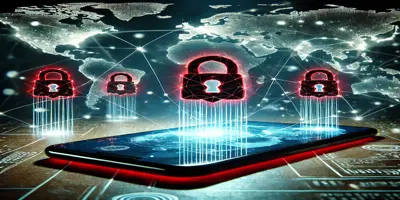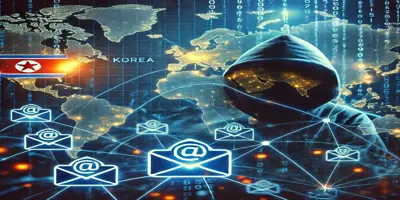Information Technology Security Awareness Posts

The Importance of a Robust Data Handling, Protection, and Retention Policy
A strong data handling, protection, and retention policy is critical for protecting sensitive data and preventing breaches, as seen with incidents like MOVEit and Finastra. Organizations must enforce strict controls both internally and with vendors, including thorough assessments, clear contracts, and continuous monitoring. By adopting these practices, businesses can reduce risks, ensure compliance, and safeguard their reputation.

Mystery Drones Over New Jersey: Monitoring and Mitigation
Recent sightings of large drones flying in formation over New Jersey have raised privacy and security concerns. Authorities are investigating, but the situation highlights the need for advanced technologies like radar, RF signal analysis, AI, and geofencing to monitor and counter unauthorized drone activity. Enhanced collaboration among agencies and the private sector is vital for managing this growing challenge effectively.

Windows Zero-Day Vulnerability: Credential Theft Across Windows Versions
A critical zero-day vulnerability affects Windows 7 through 11 and Windows Server 2008 R2 onward, enabling NTLM credential theft via malicious theme files. Attackers exploit external network paths in theme files to intercept hashed credentials for pass-the-hash or NTLM relay attacks. Mitigation includes using ACROS Security's micropatch, disabling NTLM, and educating users about theme file risks.

Senators Warn Pentagon About China's Telecom Hacks
U.S. senators have urged the Pentagon to address vulnerabilities in telecommunications infrastructure following the Salt Typhoon espionage campaign, attributed to Chinese state-sponsored hackers. This sophisticated attack targeted telecom networks globally, exposing critical gaps in cybersecurity. Lawmakers are calling for stronger enforcement of security standards and reforms to protect national security. Learn more from The Register and WSJ.

Cisco Releases Security Updates for NX-OS Software
Cisco has released critical security updates for NX-OS software to address vulnerabilities that could lead to authentication bypass, denial of service, or arbitrary code execution. These flaws pose significant risks to network security. Administrators are urged to review Cisco’s advisories and apply patches immediately to protect systems from potential exploits. Learn more: Cisco Security Advisories

FBI Urges Telecoms to Enhance Security After China-Backed Hack
The FBI has issued an urgent warning following a China-backed cyberattack targeting major U.S. telecom providers, compromising call records and live communications. The breach exploited vulnerabilities in CALEA-compliant systems, prompting recommendations for robust encryption, system updates, and cybersecurity education. The attack highlights growing threats to national security and the importance of fortified defenses in critical infrastructure.

Understanding the Recent T-Mobile Hack
The recent T-Mobile hack, attributed to the Salt Typhoon group linked to China's PLA, highlights critical vulnerabilities in telecommunications infrastructure. The breach raises significant concerns about national security, as hackers may have accessed surveillance tools and sensitive data. This incident underscores the urgent need for robust encryption and advanced cybersecurity measures to protect critical systems. Read more about the implications below.

North Korean Kimsuky Hackers Exploit Russian Email Services
North Korea's Kimsuky hackers are using Russian email services to conduct spear-phishing attacks, targeting think tanks, academics, and media organizations. By impersonating trusted entities, they aim to steal credentials and gather sensitive geopolitical intelligence, aiding North Korea's cyber espionage and weapons programs. Enhanced email security measures and vigilance are essential to counter these threats. Read more: The Hacker News.
